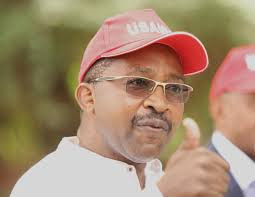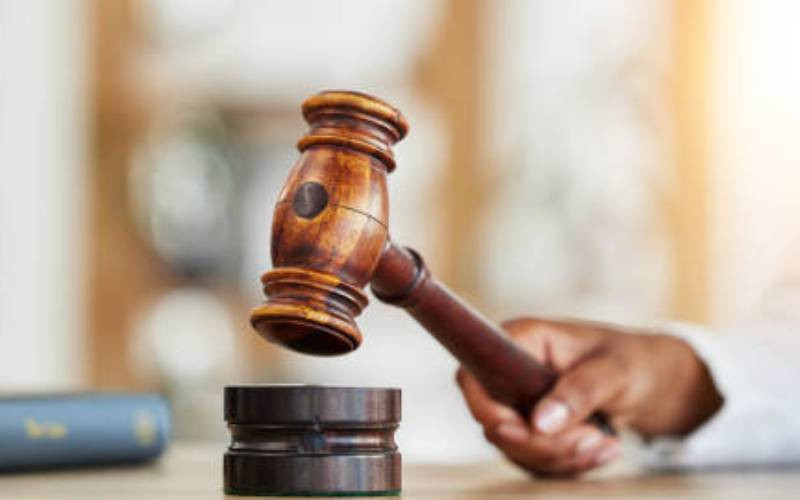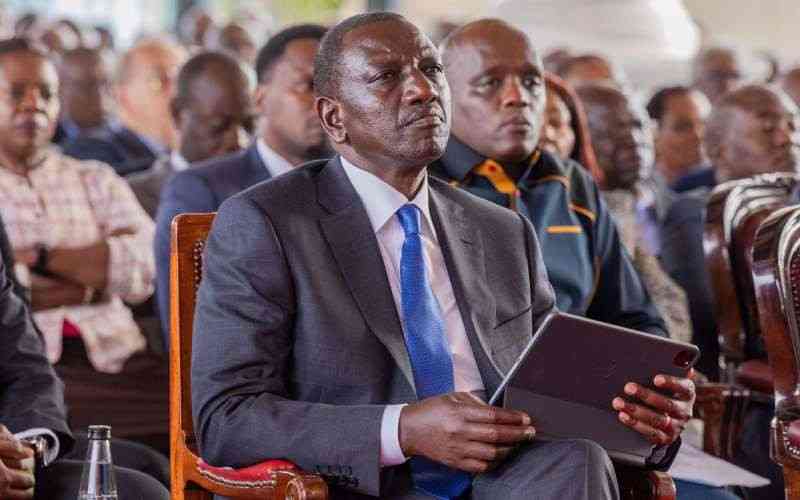Doping is real and merchants of this, vice, nay slow death, are on the loose. The Government ought to take a position on how to deal with it and save a generation from slow death
 |
|
Cabinet Secretary for Sports, Culture and the Arts Dr Hassan Wario present a copy of the Anti-Doping Taskforce Final Report Book to Sifuna Shiveka of Kenya Hockey Union during official launch of the report in Nairobi on Friday, October 17th. 2014. Photo/Jonah Onyango. |
Excuse me folks. Why would a federation whose subjects are adversely mentioned fail to attend a Government function where the matter is to be discussed?
I am yet to understand why Athletics Kenya (AK) missed a function where doping matters and how to tackle the problem was being discussed on Friday. And under the leadership of no less a person than Sports Cabinet Secretary?
It was as baffling as it was disappointing that AK, which boasts as the best run federation would find it inappropriate to send a representative to the function where the Anti-Doping Task Force Final Report was handed over to the Government.
Was it a snub after the report indicted the federation in general for not working hard enough to manage doping matters, and its president in particular for ignoring summonses to appear before the Task Force to shed some light on this matter that has portrayed our talented and hard-working athletes in very bad light, especially in the past two years?
One would have expected AK bosses to be a bit more courteous and conduct themselves with decorum, seriousness and demeanor they exhibit in other areas like meeting with sponsors and managers to take this sensitive subject a notch higher.
Snubbing the Task Force, not once, not twice, but three times and now the official launch with the Cabinet Secretary is not compatible with smart corporate image, but, for lack of a better word, the height of arrogance.
The learned fraternity will call it ‘impunity ab initio’.
I do not know why it took so long to receive the report. Prof Moni Wekesa completed this task in April. It left very bad taste on many peoples’ mouths. But such are the occupational hazards of some tasks, which you do not perform to please people, but to help society, sports and, more so, the youth of this world.
And doping, for that matter, is a sensitive area. Consequently, he was bound to step on some sensitive toes in the course of his work. He certainly delivered some very bad tidings.
Yet he was not meant to whitewash the scourge and make a report that would read: “Our sportspeople are clean and federations are doing a great job in educating them on doping matters....”
Many reports have been written that were left to rot on some office shelves. Their recommendations were not even acted upon. Fearing such a predicament, the University don, I am reliably told, sent a copy to the World Anti-Doping Agency (WADA).
Wada then raised the red flag, and registered their unhappiness with the Kenyan government during a recent function in Tokyo.
It is good that the Cabinet Secretary, although perceived to be somewhat timid towards matters sport, as opposed to art and culture, which are his forte, made time to receive and launch the report. But promising to act on its recommendations could be another ball game.
Indeed, as part of this fight to tame cheats, a delegation will attend a conference on doping in Cape Town from tomorrow. Led by the Sports Principal Secretary Dr Richard Ekai, the delegation will also include Sports Secretary Japhter Rugut, Commissioner for Sports Gordon Oluoch and head of the National Olympic Committee of Kenya Medical Commission, Dr Ogeto.
Stay informed. Subscribe to our newsletter
The formation of an anti-doping agency is long overdue. But its formation is one thing and empowering it quite another. Jamaica acted swiftly on allegations of cheating by their athletes.
While we were procrastinating and living in denial, even rubbishing some reports about the existence of some bad apples in our midst, Jamaica chose to own up and act.
While we were saying the world was just jealous of our achievements, our athletes were testing positive and being banned from competition, either due to ignorance or by deliberately opting for subterfuge.
We must wake up and stop burying our heads in the sand. Doping is real and merchants of this vice, nay slow death, are on the loose.
The Government ought to take a position on how to deal with it and save a generation from slow death.
— The author is the Senior Associate Editor, Sports. [email protected]
 The Standard Group Plc is a
multi-media organization with investments in media platforms spanning newspaper
print operations, television, radio broadcasting, digital and online services. The
Standard Group is recognized as a leading multi-media house in Kenya with a key
influence in matters of national and international interest.
The Standard Group Plc is a
multi-media organization with investments in media platforms spanning newspaper
print operations, television, radio broadcasting, digital and online services. The
Standard Group is recognized as a leading multi-media house in Kenya with a key
influence in matters of national and international interest.
 The Standard Group Plc is a
multi-media organization with investments in media platforms spanning newspaper
print operations, television, radio broadcasting, digital and online services. The
Standard Group is recognized as a leading multi-media house in Kenya with a key
influence in matters of national and international interest.
The Standard Group Plc is a
multi-media organization with investments in media platforms spanning newspaper
print operations, television, radio broadcasting, digital and online services. The
Standard Group is recognized as a leading multi-media house in Kenya with a key
influence in matters of national and international interest.










